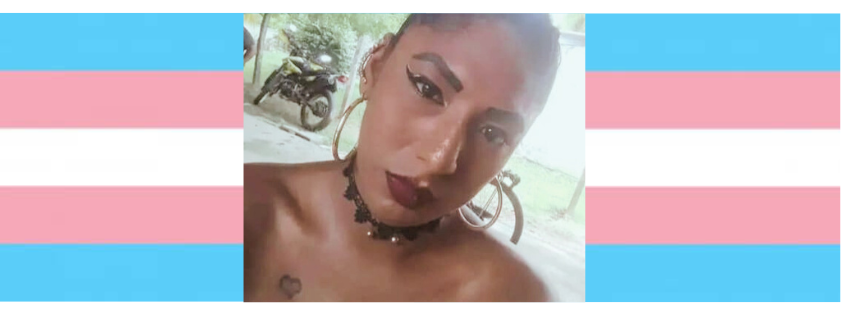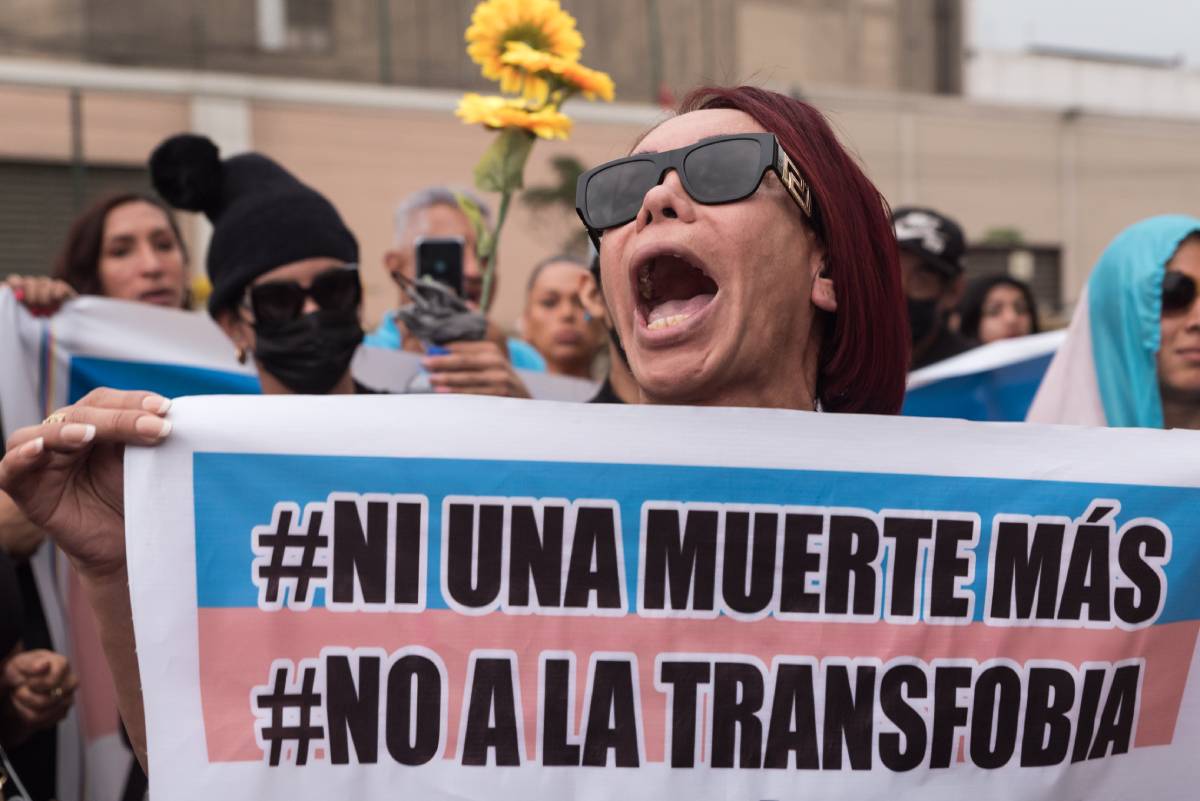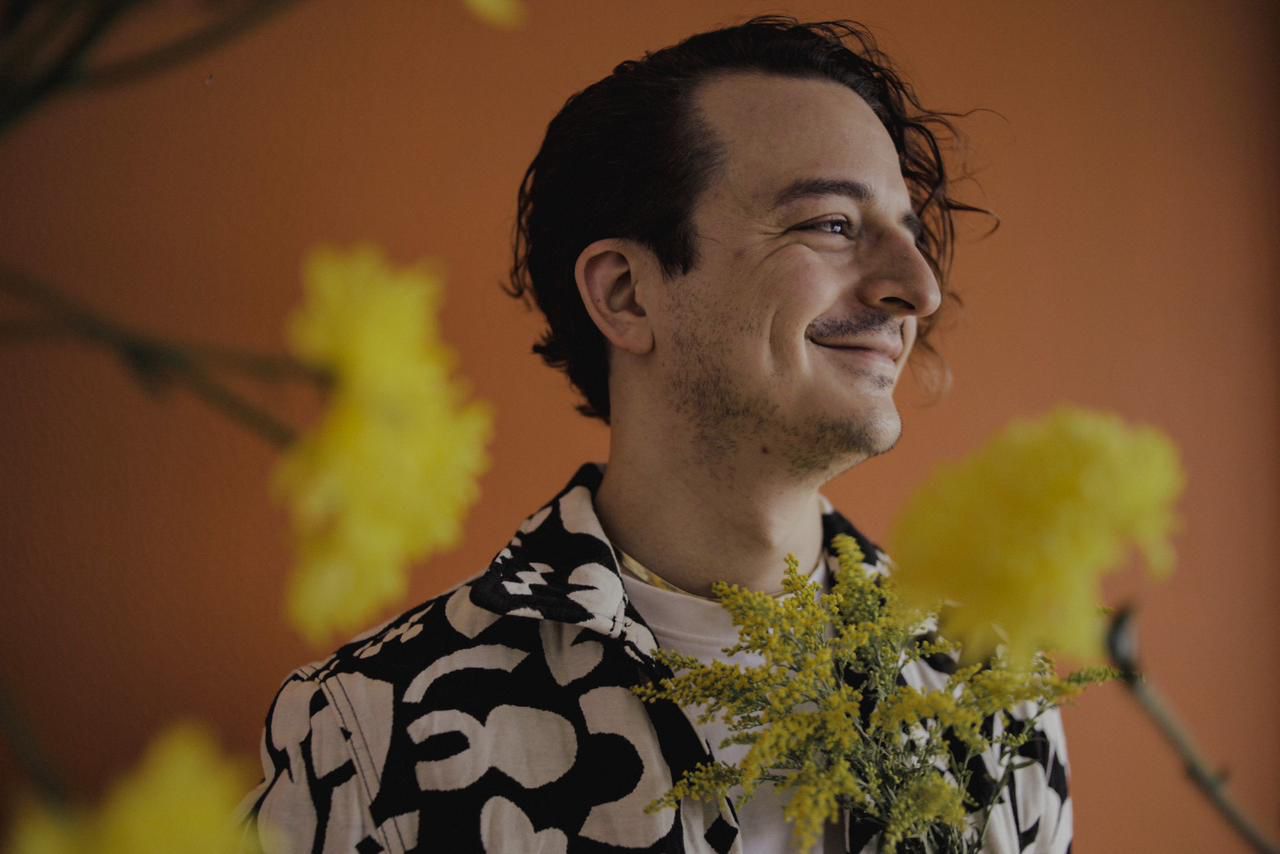Solidarity and feminism in the midst of genocide: interview with a Palestinian lesbian activist
Queer activist Ghadir Shafie tells how diversities live in a context of war and genocide.
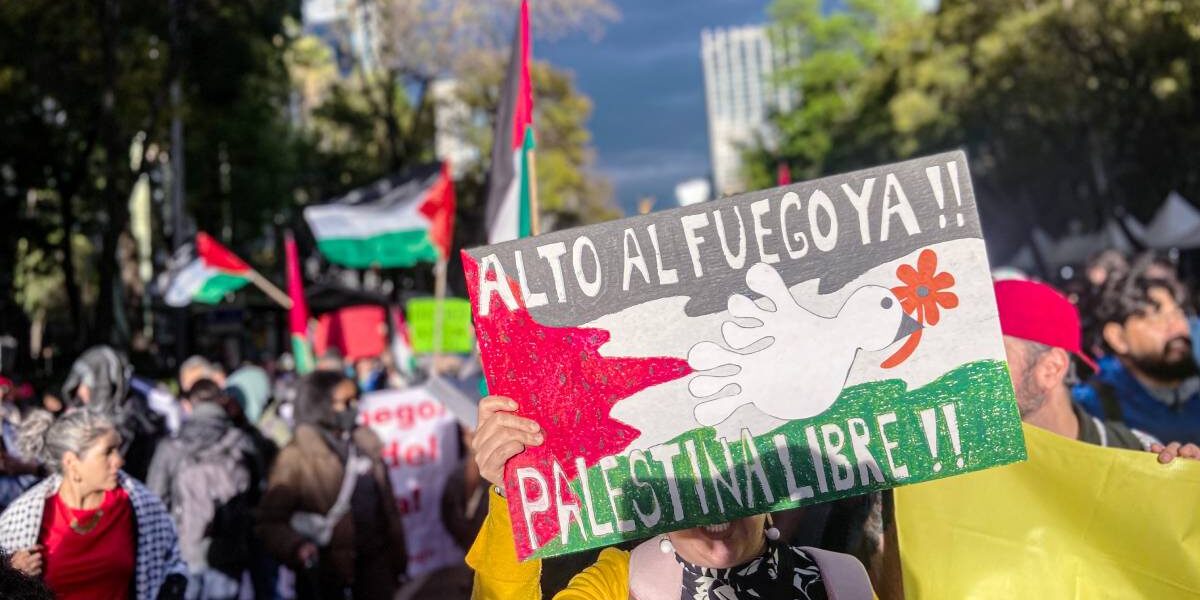






Compartir
Since October 7, 2023, after the surprise bombing organized by HAMAS towards Israel, the Palestinian population and mainly in the Gaza Strip are witnessing an accelerated genocide, in addition to the continuing invasions and settler colonialism, throughout the Palestinian territory and refugee camps in the world.
In this context, from Presentes we contacted Ghadir Shafie, a Palestinian queer activist and co-director of Aswat, to listen and shed light on queer experiences, pinkwashing strategies, boycott and the reality that the entire Palestinian population is living today.
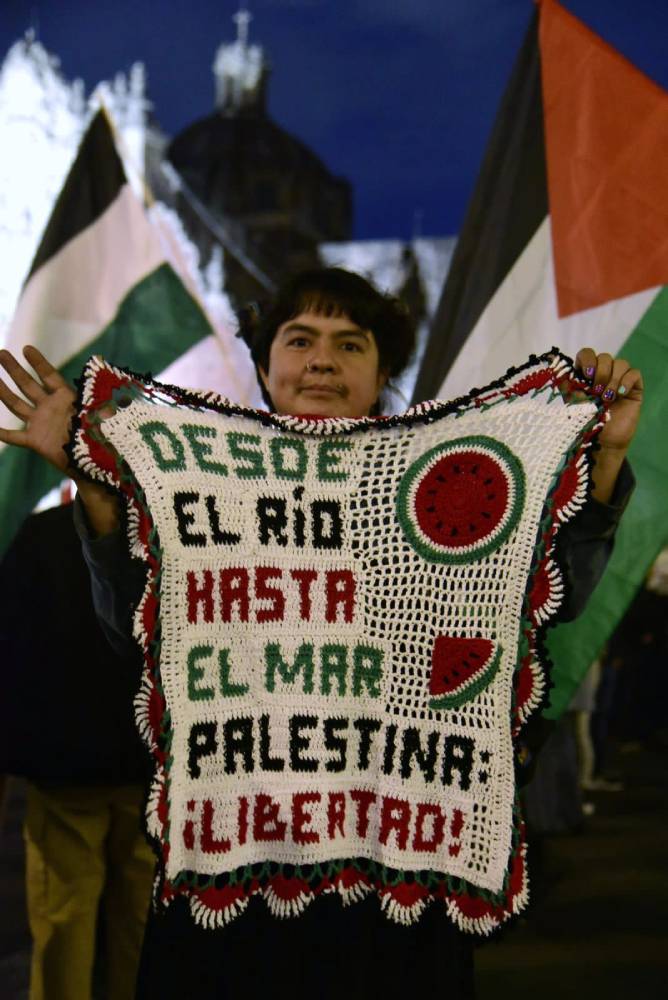

Before starting the interview, Ghadir makes a clarification:
ÂŦToday the most urgent demand is to stop the war in Gaza. To call for an immediate ceasefire, and in this context to talk about how Israel is trying to cover up this genocide. I want to frame this interview around that and for queer activists to be more supportive and active with Palestine. It’s time to do everything in our power to put pressure. We want to end the genocide of all Palestinians that targets all people, of all genders, of all ages.Âŧ
–What does it mean to be queer in Palestine?
-Similar to other places in the world, LGBTQA+ people face the same universal challenge as all queer people around the world.
Very often in the West you hear that they say they want to ÂŦsaveÂŧ Palestinian queer people from the homophobic society, from the conservative society, from the backward family and we usually say, thanks but no thanks. We don’t need to be saved as queers, we have managed to raise the bar with our own community, within the Palestinian feminist movement, within the Palestinian National movement. We have managed to create a discourse that includes all our struggles, that unites queer, feminist struggle and resistance to all forms of oppression. But I believe that now we need active solidarity, international and Queer solidarity to liberate ourselves as Palestinians. Today, from other places you can go out and demonstrate against genocide, but as a Palestinian sitting in Israel, I can’t do anything, it’s illegal for me to share messages that show sympathy. It’s illegal to go out and demonstrate, it’s illegal to speak Arabic on public transportation, if you speak Arabic you can get shot.
It is important for us to insist on our narrative that all Palestinians are worthy of life and that Palestinian queers are being killed by Israel, not by HAMAS, not by terrorists. It’s by the Israeli army and it’s important to make that clear. Because this is the measure and the propaganda that Israel is trying to promote that they want to protect queer people from Hamas because they are killing them.
Today we have all the functional pressure united to commit this genocide that is still going on as we are here talking. I don’t want to give figures, because the numbers are much higher than what we see. Palestinian queers are facing the crime of aparthaid, occupation, settler colonialism and now genocide.
Today the claim of all Palestinians is the right to live liberated.
–Is it an intersection of identities?
Being oppressed has nothing to do with my society. I have been able to grow in my society, I have even been able to have a child, I have grown as a queer woman in my society, we have even managed to be part of the BDS (Boycott, divestment, sanctions) movement that mentions us in all publications in all languages. We have created visibility within our own communities.
Queer Palestinians don’t just talk about sexual and gender identity. It is impossible to talk only about identity without talking about the big elephant in the room. For the queer movement in Palestine, which started to form about 20 years ago with the creation of grassroots organizations, it was important to create a narrative that was intersectional, that brought together circles of oppression, because at the end of the day my oppression is not only dependent on my queer oppression, I am also oppressed as a woman in a very conservative, militaristic and somehow religious society, where very often women’s rights are compromised for the sake of society, religion, men, whatever. And of course, as a Palestinian, it depends on where you live, whether you are under occupation, settler colonialism or apartheid, but also in the context of pinkwashing or homophobia.
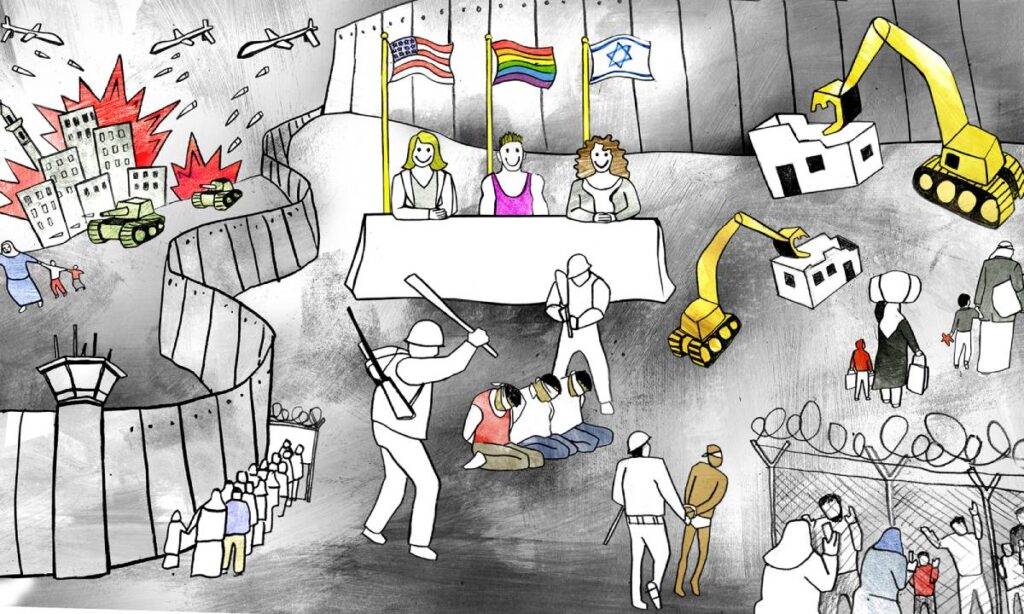

The notorious ÂŦpinkwashingÂŧ issue
Pinkwashing is nothing new in Israel. In fact they use different types of pinkwashing to justify genocide, occupation and colonization against Palestinians. There is a close relationship between Israel, tourism and pinkwashing.
The article ÂŦBoycotting colonialism: the link between Israeli pinkwashing & tourismÂŧ defines it this way:
ÂŦIsrael has been strategizing and investing huge sums of money in Pride marches and the tourism industry. They work methodologically, which means that there are several political entities involved, not just the Israeli government. One of the projects carried out by foreign organizations is the so-called Aliyah, a Hebrew word meaning return or immigration to the Promised Land. They are using the concept of Pride Aliyah to encourage Jewish homosexuals to ‘return’ to the Land of Israel. This is just one of many examples…Âŧ
-How does pinkwashing work today? What strategies do they use and what for?
-Homosexuals all over the world face homophobia, but here, in the context of Israel, in addition to homophobia that may come from Palestinian society or Israeli society, there is also a pinkwashing agenda, pinkwashing, which is really very dangerous because it doesn’t just say ÂŦIsrael is gay paradise, come to Tel Aviv and celebrate your identityÂŧ which is not only a lie, but it also goes a step further to portray all Palestinians as backward, homophobic and therefore deserving of oppression, and creates this colonial superiority of Israelis over Palestinians.
Israel has used many washing programs such as: greenwashing, PurpleWashing and now genocide washing. And I think with all the disturbing images we have seen and continue to see from Gaza, one that was really horrible was an Israeli soldier standing on the rubble of the destruction of Gaza with many tanks in the background, holding a gay flag saying this is a message of peace, -we have to defeat HAMAS because if HAMAS knew I was gay they would kill me too. Even this genocide is being pinkwashing by Israel, saying they will bring liberation, they will bring peace, openness and homosexuality, while in reality they are destroying whole families and neighborhoods and killing every sign of life.
If you ask about pinkwashing, since 2009 that pinkwashing was perverse, because when I was a teenager questioning my sexuality there was nothing in the Arab school to talk about Identity, there was only a support line, ÂŦwhite lineÂŧ in Tel Aviv that I called and they told me, ÂŦyou have to come and live in Telaviv if you are a Lesbian.Âŧ
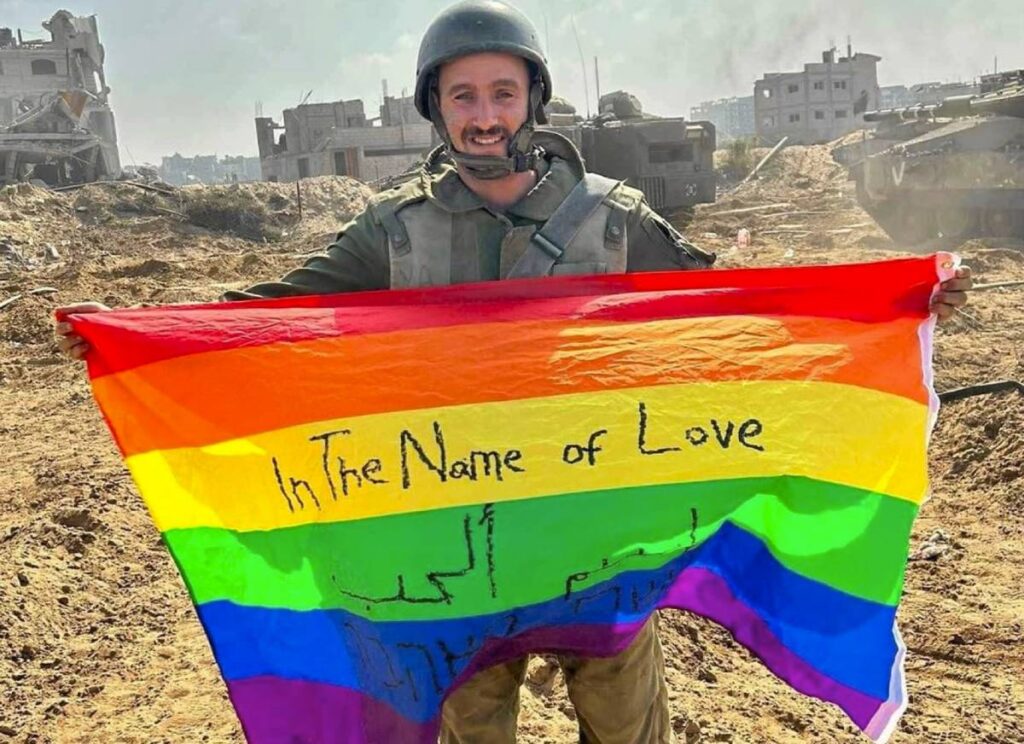

– How was your life in Tel Aviv as a Palestinian?
-After I graduated I came to live in Tel Aviv and very soon my Israeli friends wanted to change my name because they said you have to look and sound like an Israeli, because that’s how you can be gay. I was very young and naÃŊve, but for me it was very clear, I’ve been Palestinian all my life, and I was just starting to question my sexuality, so it was very hard to agree with this discourse and the imposition of my identity. It’s like : ÂŦYou can’t be a queer Palestinian, you have to be a queer IsraeliÂŧ, and change your identity and character. For me it was very strange and insulting, I remember I waited until the end of the schooling year, and I left Tel Aviv and never looked back. Actually it was Tel Aviv that put me back in the closet. And it took me about 10 years to get close to Aswat, (queer feminist movement for sexual and gender freedom for Palestinian women, who are part of an indigenous minority living and discriminated against in the state of Israel). The first time I went to Aswat, it was the first time in my life that I was able to be a Palestinian queer woman and I didn’t have to apologize or explain anything. It was the first time I was able to reconcile my national identity with my sexual identity.
The reason Aswat was created was that many Palestinian trans and lesbian people were part of Israeli LGBT organizations, which had obviously started to establish themselves earlier for their political, social, and economic convenience.
Many of us queer Palestinians wanted to go to Israeli organizations and we were welcome as lesbians, but not as Palestinians. You have to check your identity at the door, and they tell you: -you can’t talk about Palestine or liberation or occupation here, you can only talk about lesbian rights.
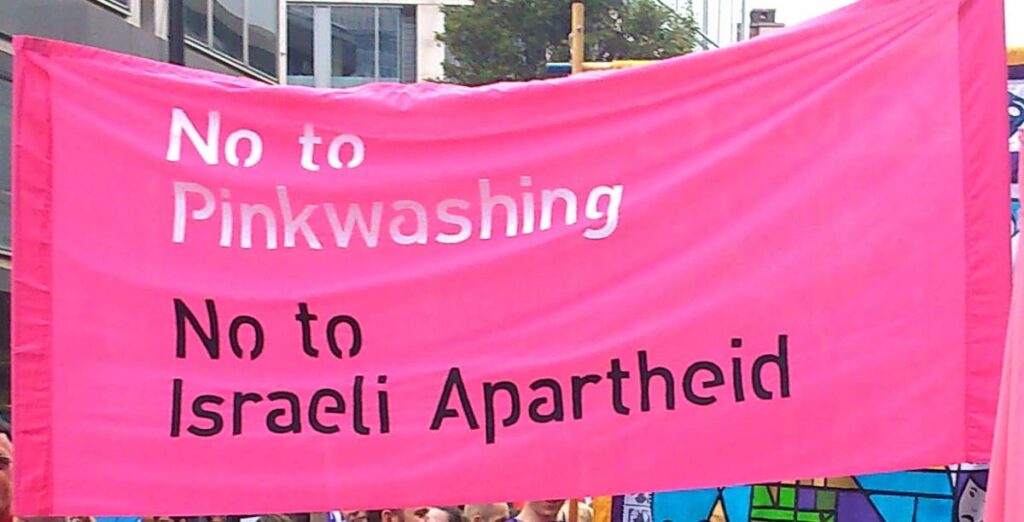

-A few weeks ago a lesbian member of Queer for Palestine who was passing through Mexico told one of the many difficulties they have to live in occupied territory controlled by Israel: ÂŦThere are 700 checkpoints in Israel. That means that every 1 km our brown bodies are searched by invaders, today it is considered already 17 years ago the longest concentration camp in the worldÂŧ. In the war between Ukraine and Russia people felt and feel more identified, precisely because they are white bodies, not brown bodies being displaced and killed.
– I think the world still doesn’t understand the suffering of the Palestinians, the urgency of doing something to stop it and the belief that each and every one of us can do something. This is not the first war in a lifetime, not the second, not even the third war we witness, and if you want to count all the wars since I was born, there have been more than fifteen. War is something we see in the course of our lifetime, but we don’t get used to it, the world is getting used to it, is getting used to what it sees. I think most people who want to see can see now, before there was a veil, but today anyone can understand what is going on.It is not a war between two armies, it is not a war that allows people to flee as in Ukraine. In Ukraine they can flee, despite the horrible situation there, some at least have the option to leave. The people in Gaza don’t have that opportunity, there is nothing in the world or in modern history anything that can compare to it, anywhere. So I think hard times call for hard measures, extreme times call for extreme measures.
The idea of war creates a lot of fear and chaos. It’s very difficult to organize. If you live in Gaza you are dying, if you live in West Bank they are invading them. They invade Jenin, they invade Nablus, and many more, it’s impossible to go there. They are arresting people, they are creating a lot of chaos and disrupting people. If you live inside Israel, it’s like Korea, really everything is monitored.
-What is your current situation like? How do you go through the war and genocide from other cities in Israel?
-I live in a mixed city, there are five mixed cities where Israelis and Palestinians live in the same building, in the same street. This government is giving M16 guns to walking settlers. It’s not just the police or the army, there are civilians walking around with guns. If you go to a grocery store to buy bread and milk, this is seen, it’s very scary, the streets are still empty.
It’s an atmosphere of fear, chaos, sadness and helplessness. Many people don’t know what to do with the war, there is no media, you can’t say anything, they don’t let us post anything on networks, one girl posted: GOD HELP US, and they arrested her, and every day she has a Zionist protester threatening in her store, she calls the police and the police come and help the Zionist protester to intimidate her. They cut off her electricity and water. In the one demonstration they tried to organize they came to arrest everybody, children, men, women, they took everybody and said: who wants to go out and demonstrate? We will give the police permission for the police to shoot with ammunition at the demonstrator if they are Palestinians. Then you don’t see anybody protesting because everybody is afraid. There is no form of expression at all, you can’t do anything at all, and I think that creates more trauma, creates more anger and more hatred in your body. I do meditation, I have support groups, but most people don’t have it anyway to be free from all the anger of this war. We have friends, people have family in Gaza, the suffering belongs to everyone. How much you suffer it depends on your geographical location whether you are in physical danger, emotional danger or both. It’s crazy at the moment.
A strategy for living
The increasingly global and powerful BDSmovement is defined as follows:
Boycott, Divestment and Sanctions ( BDS) is a Palestinian leadership movement for freedom, justice and equality. It was created in 2005. BDS upholds the basic principle that Palestinians have the same rights as the rest of humanity. Inspired by the South African anti-apartheid movement, the BDS call for action to pressure Israel to respect international law.
There is a news outlet where you can find all the brands that support Israel or are complicit in genocide: thewitness.
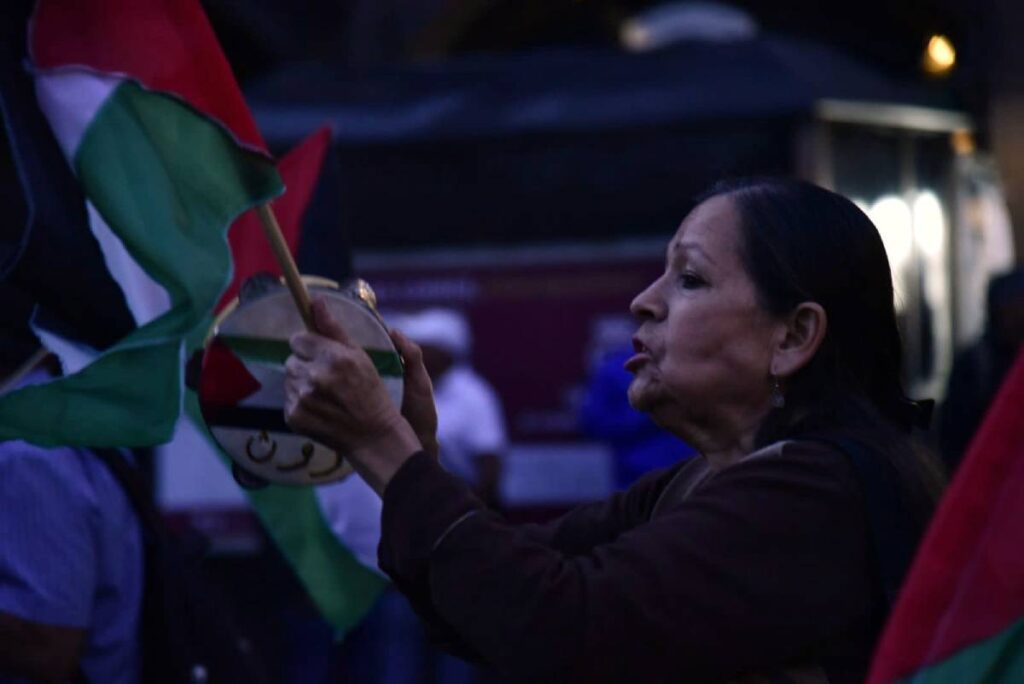

-Boycott strategies work? What do they need to keep demanding a ceasefire?
People think we are very well connected. We are not very well connected. People don’t know what to do, there is no leadership for Palestinians. Usually people are inspired by the leadership of communities that are organized. Today we organize individually, because organizations can be attacked.
We see that the government has its own interests, they wanted gas, now they want gasoline, etc. But people are obviously showing solidarity and we have seen it in many nations, and we think this is what makes the difference, people around the world have power, they have the power to boycott and that is extremely effective, we see how Sturbuck and many others are paying the price for their complicity, they are paying the price for supporting the regime that continues to commit genocide against innocent people.
I know it hurts to see children and women die, but we all deserve a chance to live and that is the message. I think as an activist we have a duty to dismantle this narrative, and I understand why they are doing it, because Israel claims that with these killings they are fighting terrorist fighters, but how is a 1 or 5 year old child a terrorist? How is a pregnant woman a terrorist. I think this narrative is aware thanks to the UN, because they have a specific protection department for women and children, and also because Israel is claiming that it is mostly killing HAMAS, and the number of killings of women and children is extremely high.
Today we are more aware of how helpless we are and we are also aware of how powerful we can be when we all commit to boycott, when we all commit to not rest until Palestine is free. This commitment will allow us to live liberated, to live as normal, peaceful, happy and free people in body, heart and mind.
Somos Presentes
Apostamos a un periodismo capaz de adentrarse en los territorios y la investigaciÃģn exhaustiva, aliado a nuevas tecnologÃas y formatos narrativos. Queremos que lxs protagonistas, sus historias y sus luchas, estÃĐn presentes.
APOYANOS
SEGUINOS
Notas relacionadas
Estamos Presentes
Esta y otras historias no suelen estar en la agenda mediÃĄtica. Entre todes podemos hacerlas presentes.

 Apoyanos
Apoyanos
